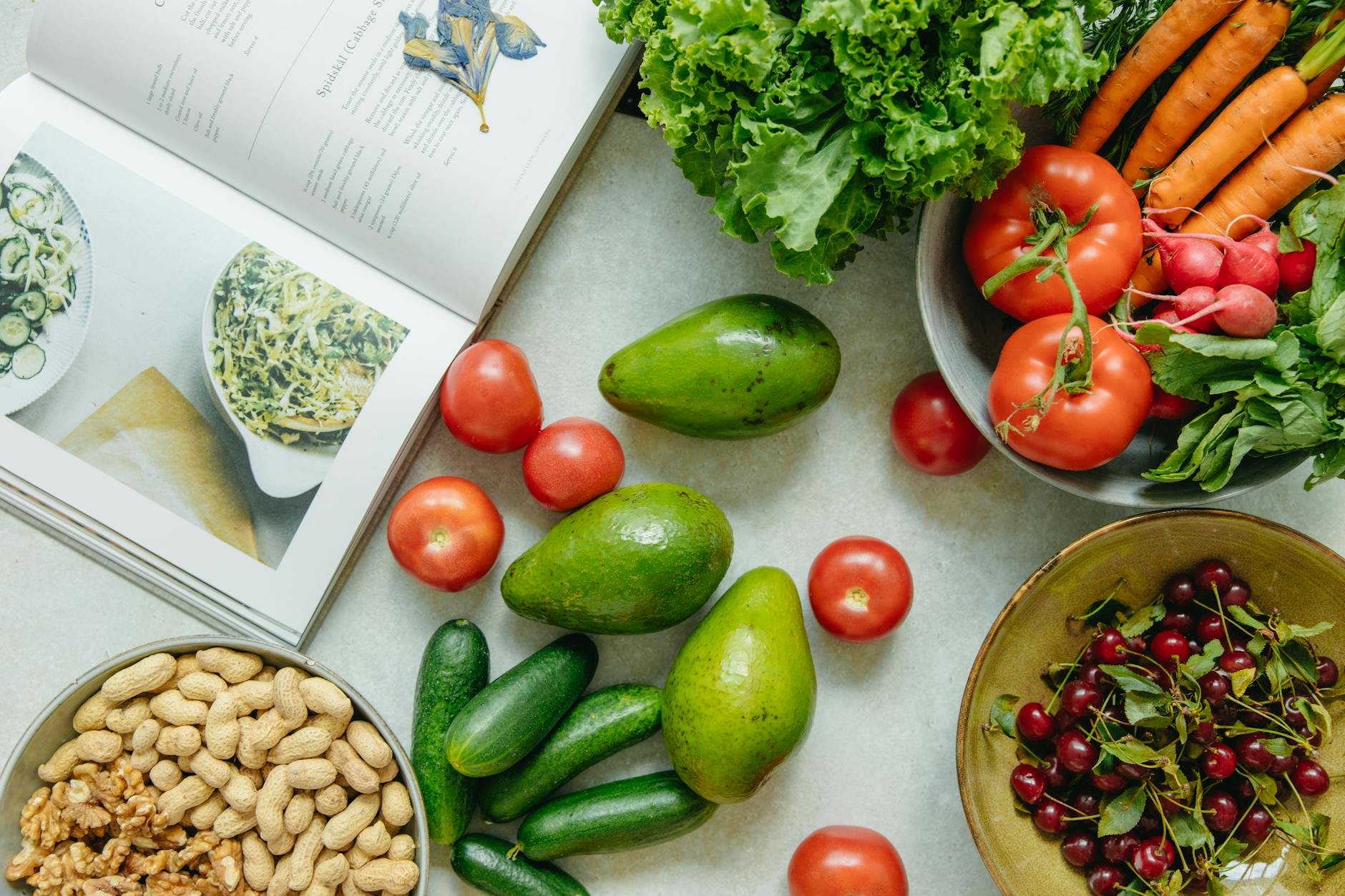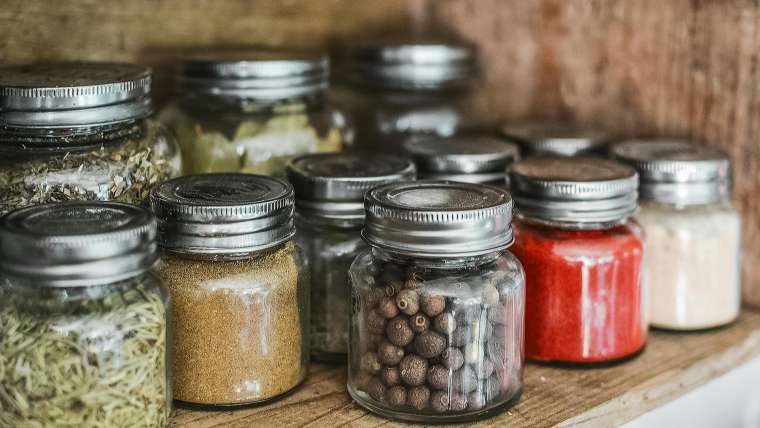Discover essential cooking tips, must-have kitchen tools, and easy recipes for beginner chefs looking to hone their culinary skills.
Table of Contents
- Introduction: Your First Steps in the Kitchen!
- Getting to Know Your Kitchen
- Choosing Easy-to-Follow Recipes
- Basic Cooking Techniques to Master
- Understanding Ingredients
- Cooking Comforting Classics
- Culinary Terms Explained
- Practice Makes Perfect
- Kitchen Safety Tips
- Conclusion: Celebrate Your Successes
- Frequently Asked Questions (FAQs)
Introduction: Your First Steps in the Kitchen!
Welcome, beginner chef! Are you ready to embark on a culinary adventure and explore the exciting world of cooking? The kitchen is a place filled with endless possibilities, where you can whip up comforting classics and create delicious dishes that will delight your taste buds. As you take your first steps into the wonderful world of cooking, you’ll discover the joy of experimenting with flavors, mastering basic cooking techniques, and creating meals that bring people together.
Get ready to roll up your sleeves, put on your apron, and dive into the kitchen with enthusiasm and curiosity. Whether you’re a complete novice or have dabbled in cooking before, this guide is here to help you navigate the kitchen with confidence and ease. So, grab your chef’s hat and let’s begin this culinary journey together!
Let’s explore the magic of cooking and unlock the delicious possibilities that await you in your very own kitchen. Are you excited to get started? Let’s dive in!
Getting to Know Your Kitchen
As a beginner chef, it is essential to familiarize yourself with your kitchen space and the tools you will be using to embark on your culinary adventure. Let’s dive into the basics of getting started in the heart of your home – the kitchen.
The Basics of Kitchen Tools
Every beginner chef needs a few essential tools to kickstart their cooking journey. These tools include items like pots, pans, knives, cutting boards, measuring cups, and mixing bowls. These tools will help you prepare delicious meals with ease. Remember, having the right tools makes cooking much simpler and enjoyable!
Keeping Your Space Clean and Safe
Now that you have your tools ready, it’s important to keep your cooking area tidy and practice good hygiene while you create your culinary masterpieces. Make sure to regularly clean your workspace, wash your hands before cooking, and store food properly to maintain a safe and healthy kitchen environment. By keeping your kitchen clean, you’ll enjoy cooking even more!
Choosing Easy-to-Follow Recipes
Starting your journey as a beginner chef means selecting recipes that are not complicated and offer clear instructions. You want to set yourself up for success in the kitchen, so let’s dive into how you can pick the perfect recipes to begin your culinary adventure!
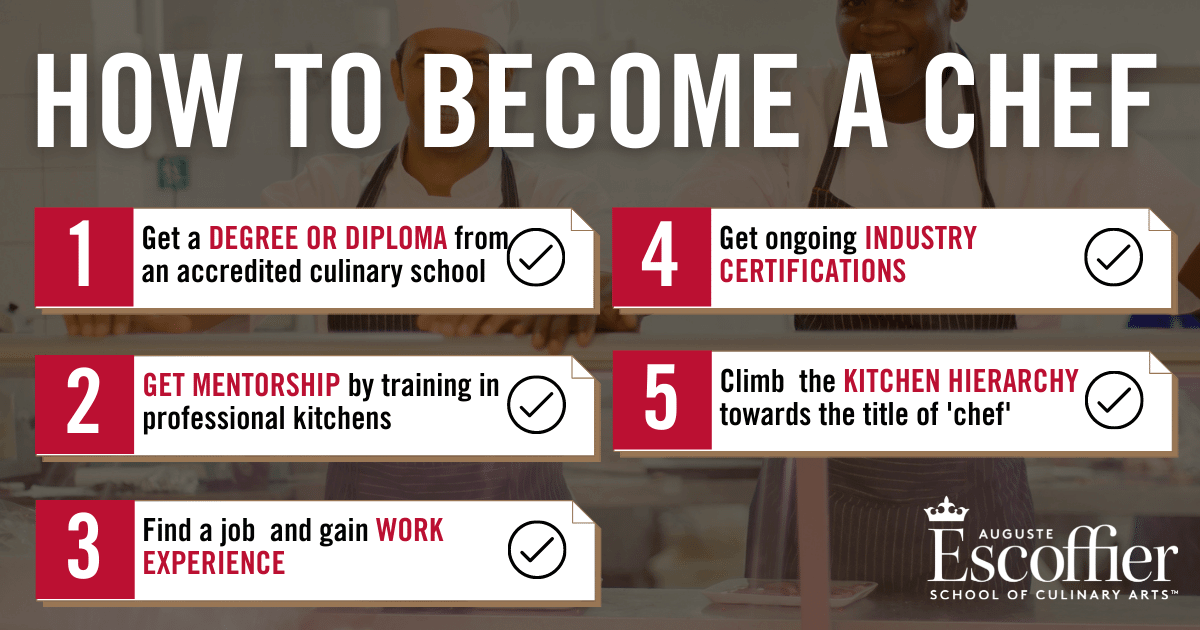
Image courtesy of www.escoffier.edu via Google Images
Where to Find Simple Recipes
When you’re just starting, it’s essential to find recipes that are suitable for beginners. Look for a recipe site or cookbook that is known for easy-to-follow instructions. Websites like Allrecipes or Food Network often have a wide variety of recipes, from simple to more advanced. You can also explore cookbooks specifically designed for novice cooks, offering step-by-step guidance and tasty results.
Understanding Recipe Instructions
Reading and following recipe instructions can sometimes feel daunting, but fear not! Take your time to read through the recipe before beginning. Make sure you have all the necessary ingredients and equipment on hand. When it comes to following the steps, go one at a time and double-check your work along the way. If you ever feel stuck or confused, don’t hesitate to ask for help or look up any unfamiliar terms.
Basic Cooking Techniques to Master
As a beginner chef embarking on your culinary adventure, it’s essential to start by mastering some basic cooking techniques. These fundamental skills will lay a strong foundation for your cooking journey and help you explore the world of comforting classics with ease.
Boiling Water – It’s Easier Than It Sounds!
One of the simplest yet crucial cooking techniques to master is boiling water. Whether you need it for pasta, rice, or vegetables, boiling water is a basic skill every beginner chef should have. Start by filling a pot with water and placing it on a stove. Turn the heat up high until the water reaches a rolling boil, with bubbles breaking the surface. You’re now ready to cook your ingredients in the boiling water!
The Art of Chopping Vegetables
Another essential skill for any aspiring chef is learning how to chop vegetables properly. Begin by selecting fresh vegetables of your choice and using a sharp knife. Hold the vegetable securely on the cutting board with one hand, while using the other hand to guide the knife in a rocking motion, slicing through the vegetable with ease. Remember to maintain a proper grip on the knife and keep your fingers tucked in to avoid any accidents.
Understanding Ingredients
In the world of cooking, choosing the right ingredients is like picking the perfect colors to paint a masterpiece. Ingredients are the building blocks of a dish, and they can make all the difference in how your creation turns out. Let’s dive into the fascinating world of ingredients and how they can elevate your culinary adventure.
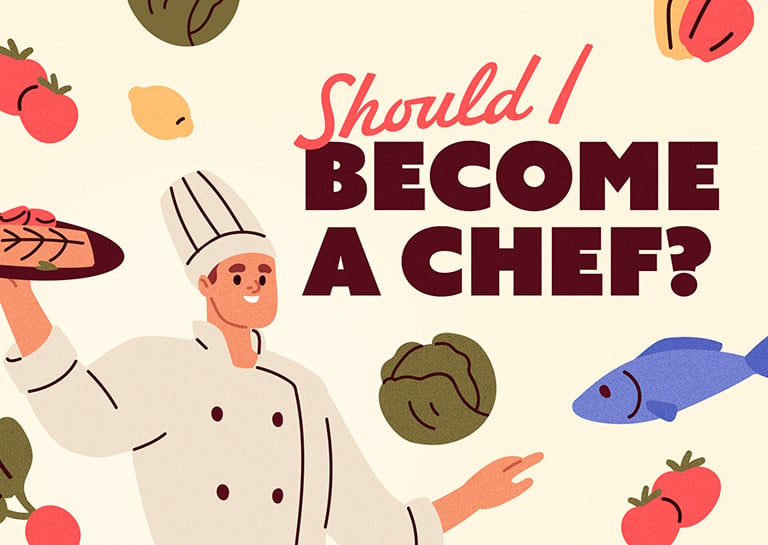
Image courtesy of www.webstaurantstore.com via Google Images
Fresh vs. Frozen – Which to Use?
When you’re ready to start cooking, you might wonder if fresh ingredients are always the best choice. While fresh ingredients are fantastic for their vibrant flavors and textures, frozen ingredients can be just as good, especially when they’re not in season. Frozen vegetables and fruits are picked at their peak ripeness and quickly frozen, locking in their nutrients. So, don’t hesitate to grab that bag of frozen peas or berries when needed!
The Spice Rack Adventure
Imagine your spice rack as a treasure chest filled with secret ingredients that can turn a bland dish into a flavorful feast. Common spices like salt, pepper, garlic powder, and cinnamon have the power to transform your cooking. Experiment with different spices to discover your favorite flavor combinations. Just remember, a little sprinkle goes a long way, so start with a pinch and add more as needed.
Cooking Comforting Classics
Are you ready to dive into the world of cooking and try your hand at some classic comfort dishes? These traditional recipes are easy-to-follow, perfect for beginners, and sure to warm your heart and tummy. Let’s explore a couple of these comforting classics that will make you feel like a pro chef in no time!
Your First Pan of Scrambled Eggs
Scrambled eggs are a go-to breakfast option that is not only delicious but also super simple to make. To whip up your first pan of perfectly fluffy scrambled eggs, start by cracking a couple of eggs into a bowl and whisking them until they’re well combined. Heat a non-stick skillet over medium heat and add a knob of butter. Pour in the eggs and let them sit for a few moments before gently stirring them around with a spatula. As they start to set, continue stirring until they reach your desired level of doneness. Season with salt and pepper, and voila – you’ve just mastered the art of scrambled eggs!
Making Magic with Mac and Cheese
Macaroni and cheese is the ultimate comfort food that never fails to satisfy. To create this cheesy masterpiece, start by boiling a pot of water and cooking your macaroni until al dente. In a separate saucepan, melt butter and stir in flour to create a roux. Slowly whisk in milk until the mixture thickens, then add shredded cheese until it’s all melted and creamy. Toss in your cooked macaroni and mix well before transferring the gooey goodness into a baking dish. Top with more cheese and breadcrumbs and bake until bubbly and golden brown. Get ready to indulge in a dish that is sure to become a favorite!
Culinary Terms Explained
As a beginner chef, you may come across some unfamiliar terms while following easy-to-follow recipes. Don’t worry, understanding these culinary terms will help you navigate your cooking adventures with ease!
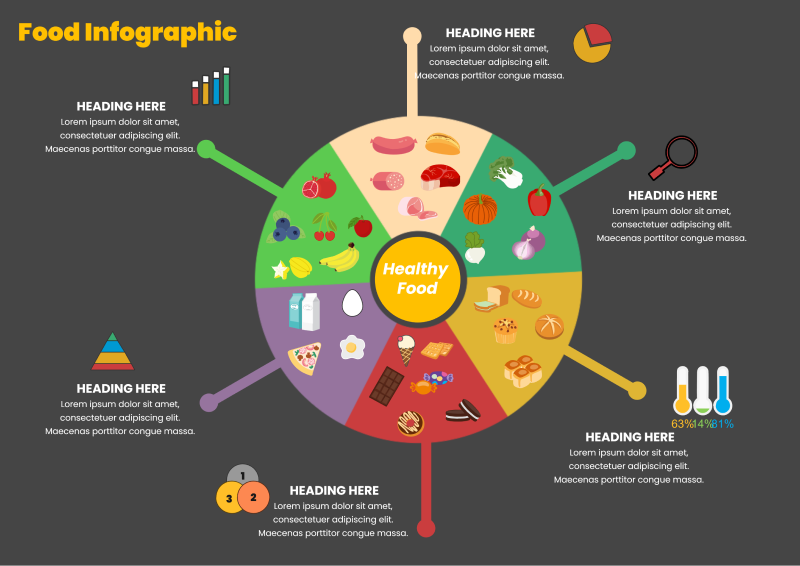
Image courtesy of www.edrawmax.com via Google Images
What is a Saute?
When a recipe asks you to sauté ingredients, it means to cook them quickly in a little bit of hot oil or butter over medium to high heat. This method helps to develop flavors and gives your dish a delicious taste.
| Category | Tips |
|---|---|
| Equipment | Invest in basic kitchen tools such as a chef’s knife, cutting board, measuring cups/spoons, and pots and pans. |
| Recipes | Start with simple recipes like pasta dishes, salads, and soups before tackling more complex dishes. |
| Ingredients | Stock your pantry with staples like olive oil, salt, pepper, herbs, and spices to enhance your dishes. |
| Techniques | Practice basic cooking techniques like chopping, sautéing, boiling, and baking to improve your skills. |
| Resources | Use online tutorials, cookbooks, and cooking classes to learn new recipes and improve your cooking abilities. |
What does Simmer mean?
Simmering is a cooking technique where you keep the heat low so that the liquid in the pot bubbles gently. This method is used to slowly cook ingredients and meld flavors together, perfect for making soups and stews.
Why is Blanching important?
Blanching is a cooking process where you quickly immerse ingredients like vegetables in boiling water, then immediately transfer them to ice water to stop the cooking. This method helps retain the color and crunchiness of the veggies.
Practice Makes Perfect
Learning to cook is like learning to ride a bike or play a new game – the more you practice, the better you become. Making mistakes in the kitchen is all part of the fun, and it’s how we learn and improve our cooking skills. So, don’t worry if your first attempt at making a dish doesn’t turn out as you hoped. Keep trying, keep learning, and soon enough, you’ll be whipping up delicious meals like a pro!
Embrace the Journey
Remember, cooking is a culinary adventure – a journey where you get to explore new flavors, techniques, and recipes. Each time you step into the kitchen, you’re taking another step on this exciting path. Don’t be discouraged by a burnt dish or a salty soup; instead, see it as an opportunity to learn and grow. Every mistake is a chance to get better, and soon you’ll be creating comforting classics with ease. So, keep exploring, keep experimenting, and most importantly, keep enjoying the process!
Kitchen Safety Tips
As a beginner chef diving into the exciting world of cooking, it’s important to prioritize safety in the kitchen to avoid potential mishaps. Here are some key kitchen safety tips to keep in mind while on your culinary adventure:

Image courtesy of visme.co via Google Images
Preventing Burns and Cuts
One of the most common kitchen accidents is burning yourself or getting cut while handling sharp objects. To prevent burns, always use oven mitts or potholders when handling hot pots and pans. When cutting ingredients, make sure to use a sharp knife and pay close attention to your fingers, keeping them safely tucked away from the blade.
Avoiding Slippery Surfaces
Spills and slick surfaces can lead to dangerous slips and falls in the kitchen. To prevent accidents, promptly clean up any spills on the floor and use rugs or mats with anti-slip backing to provide traction on slippery areas. It’s essential to wear proper footwear with good grip while working in the kitchen to maintain stability.
Handling Hot Surfaces and Steam
When cooking on the stove or using the oven, be cautious of hot surfaces that can cause burns. Always use oven mitts or handles when touching hot pots or pans, and be mindful of steam when uncovering pots to avoid getting scalded. Remember to turn pot handles inward to prevent accidental spills or knocks.
Properly Storing Cleaning Supplies
To maintain a safe kitchen environment, store cleaning supplies like detergents, bleach, and other chemicals in a secure location away from food and cooking utensils. Keep these items out of reach of children and pets to prevent accidental ingestion or harmful exposure.
Conclusion: Celebrate Your Successes
As you reach the end of this beginner chef guide, take a moment to celebrate all the new skills you have acquired on your culinary adventure. From mastering basic cooking techniques to understanding the importance of quality ingredients, you have come a long way in such a short time. Remember, every dish you prepare, whether it turns out perfectly or not, is a step forward in your exploration of the kitchen.
Embrace Your Progress
It’s essential to acknowledge and celebrate your successes, no matter how small they may seem. Maybe you nailed that scrambled eggs recipe you were nervous about, or perhaps you finally perfected your vegetable chopping skills. These milestones, no matter how minor, are worth recognizing and applauding. Each success builds your confidence and encourages you to keep pushing your boundaries in the kitchen.
Keep on Exploring
Now that you have a solid foundation in cooking basics, don’t be afraid to continue exploring new recipes and techniques. The world of cooking is vast and full of endless possibilities. Challenge yourself to try comforting classics like mac and cheese or expand your horizons with new and exciting dishes. The more you experiment, the more you will grow as a chef.
Enjoy the Journey
Above all, remember that cooking is not just about creating delicious meals—it’s about enjoying the process. Embrace the joy of being in the kitchen, the satisfaction of trying new things, and the comfort of sharing your creations with others. Your culinary adventure is just beginning, so savor every moment, celebrate your successes, and keep on exploring. Happy cooking!
Frequently Asked Questions (FAQs)
What is the first thing I should learn to cook?
As a beginner chef, it’s great to start with simple and easy-to-follow recipes. You can begin with basic dishes like scrambled eggs, grilled cheese sandwiches, or pasta with marinara sauce. These recipes are perfect for getting familiar with kitchen tools and cooking techniques.
How do I make sure I don’t get hurt in the kitchen?
To stay safe in the kitchen, always handle sharp tools like knives with caution. Make sure to keep your workspace tidy to avoid accidents. It’s also essential to pay attention to cooking temperatures, especially when using the stovetop or the oven. Lastly, never leave the kitchen unattended when cooking to prevent any mishaps.

